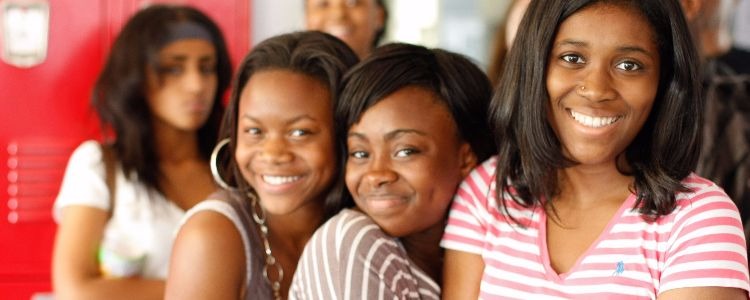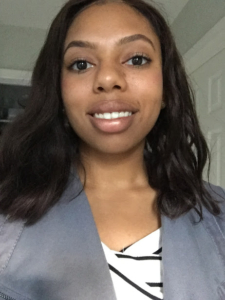When You Don’t Fit the “Eating Disorder Mold” As an African American
The first time I heard about eating disorders, I was in middle school. Our health class watched a film on the dangers of extreme dieting, and the implications it could have on mental and physical health. I watched intently as the film portrayed the typical narrative of a middle-class Caucasian girl who was on a dangerous path toward starvation. At the time, it was inconceivable to me that I could ever develop an eating disorder. I was just an average sized African-American girl who loved food.
In high school and college, like many adolescent girls, I began to feel increasingly inadequate about my body. I fell victim to society’s glorification of the thin and athletic body, and I internalized these messages. I quickly developed an unhealthy relationship with food, body image, and exercise. Unbeknownst to me, I had an eating disorder. I felt inadequate in many aspects of my life, and these feelings fueled my fractured relationship with my body. I never felt happy.
It took me a long time to seek help for my eating disorder. When I eventually realized I had a problem, I felt extremely self-conscious. There were many barriers that prevented me from seeking treatment. First, I thought had to be “thin enough.” My mind flashed back to PSA posters that lined the hallways of my school, and documentaries I had seen about eating disorders. I believed that if I didn’t look thin, fragile, or skeletal, that I was unworthy of treatment. Additionally, I never saw African-American people portrayed as having eating disorders. I felt as if I was an anomaly. I feared people wouldn’t take me seriously, or that it was impossible for me to have an eating disorder because I didn’t fit the “eating disorder mold.”
When I eventually sought help, none of my concerns about being thin enough or looking like the typical eating disorder client mattered. I was met with understanding, compassion, and empathy by all the clinicians who helped treat me. I learned that there is no stereotypical eating disorder patient, and that everyone can be helped whether or not you feel worthy of treatment.
Today, I am still fighting for recovery. What I know now is that I am enough. I can ask for help when I need it, and no one will turn me away. I work with a treatment team, and I feel heard and supported. What I hope is that everyone who is struggling can receive the care they need to recover regardless of being “enough.”
I believe the mental health advocacy community needs more accurate representations and portrayals of people who struggle with eating disorders. The reality is that people of all ages, gender identities, races, ethnicities, abilities, and sizes can develop eating disorders. If people don’t see themselves represented, it may become an obstacle to seeking treatment.
If the media highlighted the struggles of marginalized voices, I feel that more people would be comfortable coming forward to receive help. What I want people who are struggling to know is that even if you feel you are not thin enough, sick enough, or the right ethnicity to seek treatment, you are wrong. There is a place for everyone in recovery.
For recovery resources and treatment options, please visit our help and support page. If you or someone you know is struggling with an eating disorder, call ANAD’s Helpline at: (888) 375-7767 or the National Alliance of Eating Disorders Helpline at: (866) 662-1235.
If you are thinking about suicide, call or text the National Suicide Prevention Lifeline at 988. In crisis situations, text “NEDA” to 741741 to be connected with a trained volunteer from the Crisis Text Line.
Learn more about NEDA’s Marginalized Voices Project sponsored by Reasons Eating Disorder Center.
Celeste is a senior at the University of Delaware studying International Relations. She has a passion for world travel and aspires to be a mental health advocate.





